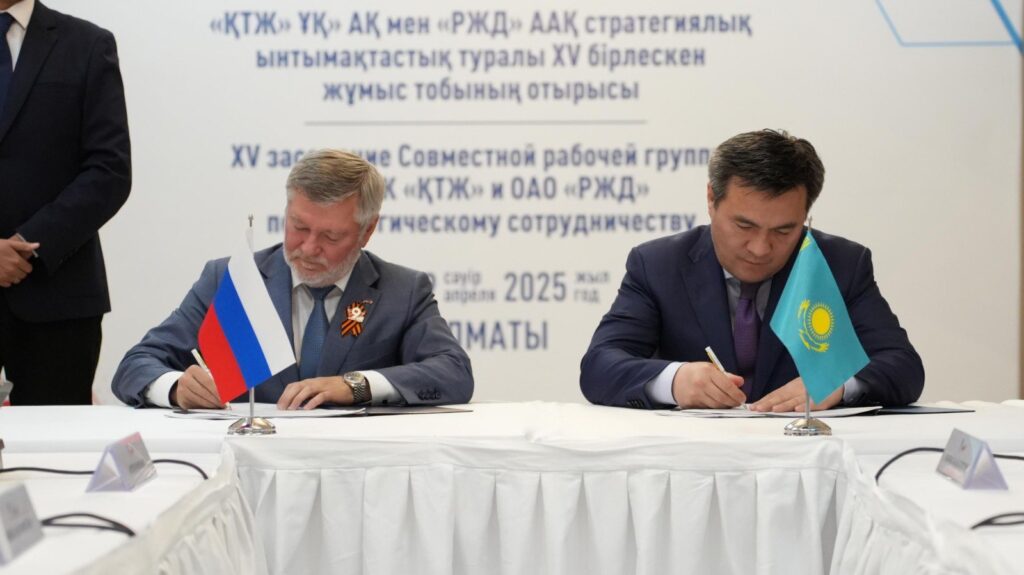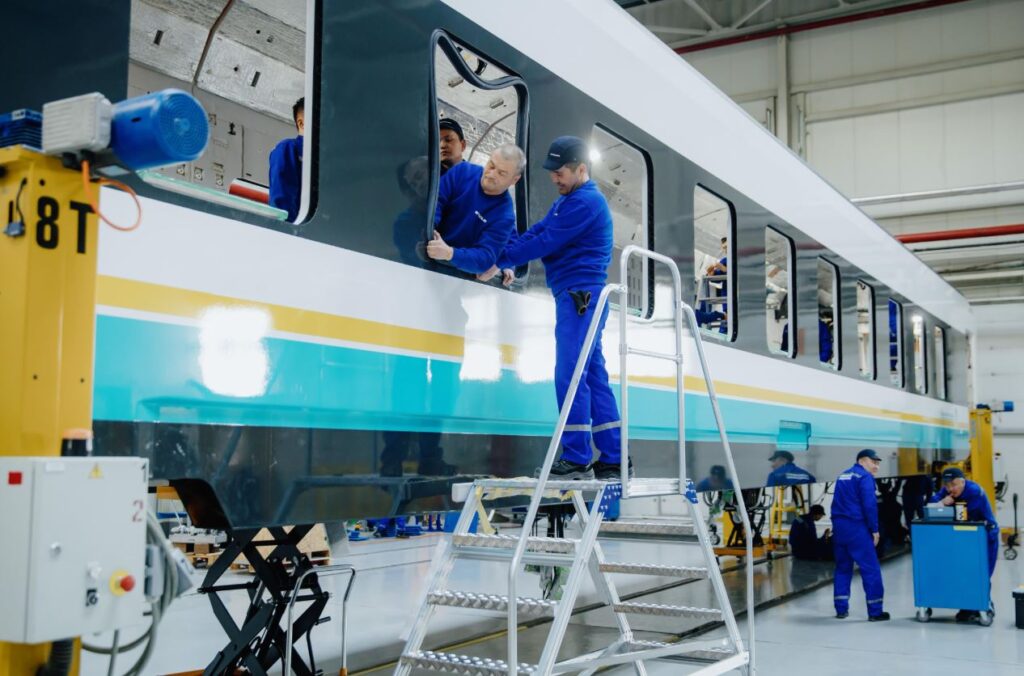Serial production of passenger railcars for Kazakhstan's national rail carrier, Passenger Transportation JSC, has officially commenced in Astana. The project is being implemented at the Stadler Kazakhstan LLP plant as part of a broader initiative to modernize the country's railway sector. Contract for 557 Cars The initiative stems from a long-term agreement between Passenger Transportation JSC and Swiss rail manufacturer Stadler Rail AG. Under the terms of the contract, 557 passenger cars of various types, including compartment and platzkart models, generator cars, and specially adapted trains for passengers with disabilities, are to be produced by 2030. The first 51 units are scheduled to enter service in 2025. The contract also includes a 20-year maintenance commitment by the manufacturer, aimed at ensuring the reliability and longevity of the rolling stock. Full Production Cycle During a recent visit to the plant, representatives of Passenger Transportation JSC inspected the facilities and reviewed completed bodies of passenger and generator cars. More than 400 specialists are currently employed at the plant, the majority of whom are Kazakh nationals. The manufacturing process encompasses a complete production cycle, from body welding and painting to the assembly of electrical components, bogies, and interior fittings. Each railcar undergoes both static and dynamic testing before leaving the production line. In the past two years, the facility has undergone significant modernization and localization, including workforce training in advanced technologies. Comfort and Safety The new Stadler cars are designed with passenger comfort and safety in mind. Each compartment coach will offer 40 sleeping berths and feature air conditioning, video surveillance, electric heating, and an automated fire suppression system. Passengers will have access to electrical outlets and USB ports in each compartment. The railcars will sport a distinctive exterior in corporate blue, yellow, and white, while the interiors will be tailored to suit Kazakhstan’s climate and long-distance travel requirements. Swiss Quality in the Steppe Stadler Rail AG is a leading European rail manufacturer with over 80 years of experience and operations in 45 countries. Renowned for producing reliable and technologically advanced railcars suited to harsh climates, the company has supplied equipment to regions including Scandinavia and Eastern Europe. President Kassym-Jomart Tokayev personally discussed the establishment of the Kazakh production facility with Stadler Chairman Peter Spuhler in December 2022. Located in Astana’s industrial park, the plant spans over 31,000 square meters and has an annual production capacity exceeding 100 railcars. The launch of serial production marks a pivotal step in overhauling Kazakhstan's railway infrastructure. Beyond replacing outdated rolling stock, the project fosters technological advancement, local job creation, and the strengthening of the domestic rail manufacturing sector.






